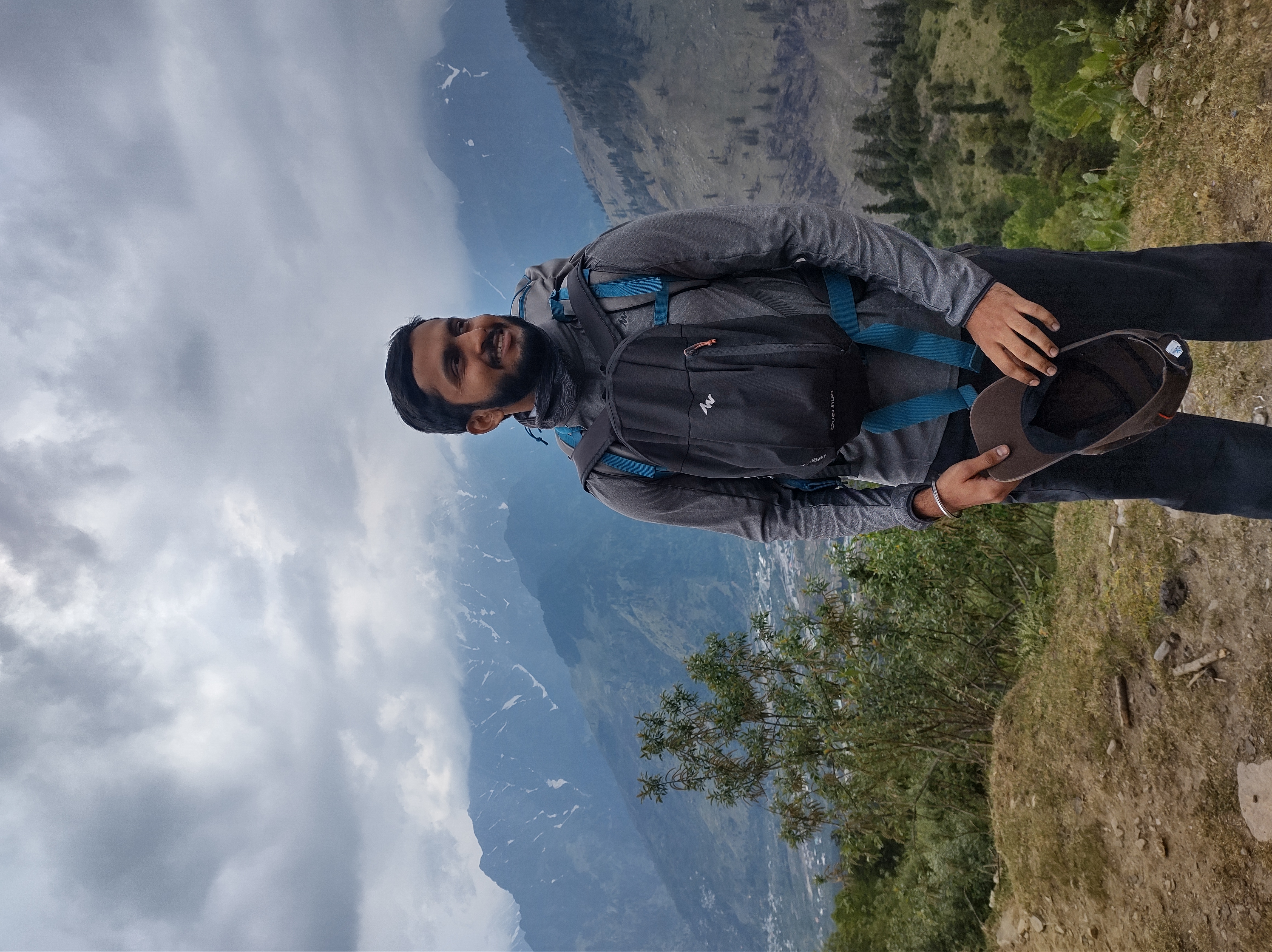The danger of a new kind of Socialism in India
The letter contains 18 points, even though they failed to make a single one. All the points in the letter, I repeat all the points in the letter, are either based on questionable data, opinions based on truism than truth, and worst of all socialist/Gandhian dogma.
Total Views |
Recently, I came across an institute named CIHS, Centre for Integrated and Holistic studies. Specifically, I came across an ‘open letter’ to FM Nirmala Sitharaman by K.A. Badrinath Director & Chief Executive of CIHS. I have nothing personal against the gentleman or the institute, but this letter deeply upset me. As in my opinion, the letter represented many problems vis-a-vis the Economy in the current establishment.

The letter contains 18 points, even though they failed to make a single one. All the points in the letter, I repeat all the points in the letter, are either based on questionable data, opinions based on truism than truth, and worst of all socialist/Gandhian dogma. As we celebrate the 75th anniversary of India’s independence, we have gotten rid of the Red Socialists successfully to such an extent that today, the Communist party-ruled government (Kerala), is privatizing a port to Adani. But as we enter the ‘Amritkal’, we have to beware of Indianized Socialists as well.
Indianized socialism is rampant in the current establishment. This brand of socialism links and rationalizes all the socialist policies of the government by linking them to some ancient Hindu texts of some barely relevant books. They try to justify the socialist policies by talking about nature and the poor while adding the flavor of tradition and religion. Indianized Socialism claims to be opposing both Capitalism as well as Socialism and proposes to give the ‘third way’ without ever mentioning the specifics of this beloved third way. Whenever one enquires about this so-called third way, the discussion reveals the true motive of peddling socialism and disowning capitalism as well as the capital through Indianized phrases like ‘Antyodaya’ and ‘Ekatma manavdarshan’. These phrases are added by the Indianized socialists to create their own space in the socialist world of the 1960s and 1970s when Socialism had many flavors in Indian politics. The attempt was to adopt the popular socialist economic theories of the time while adding the flavor of culture and tradition so as to make it ‘Swadeshi’ and not import a Socialist ideology as Marxists did.
As a result in 1980, a party emerged with the promise of adhering to the principle of ‘Gandhian Socialism’.
The same establishment has now come up with this so-called open letter which is as useful as telling a healthy human being to breathe. The letter is as bureaucratic as anything can get. If Sir Humphry Applebee from the famous BBC series Yes Minister was alive, he would make this author a Principle Private secretary in His Majesty’s government. The letter doesn't have an iota of nuance. It does not advise the government to do any structural reforms to take us from a 7% growth rate to 10-12% which is absolutely necessary to reap our demographic dividend before it becomes our demographic burden. Now let us look at the letter itself.
As most points in the letter are extremely pointless, point number one is perhaps the most pointless as well as the beginning of Indianized socialism. The very first sentence of this point is completely baseless and is backed by no data whatsoever. While to make it full of adjectives (apparently the only way Indianized socialists can make a point, in their mind, is by adding unnecessary adjectives.) the author adds the Indianized socialist flavor of ‘Vishwa Guru’. The second point is equally laughable when the author claims that India is ‘leading’ several global organizations like G20 and SCO. The GOI itself has announced, something a rookie in foreign affairs would understand, that the presidency of G20 and SCO is on a rotational basis and not something India has ‘won’ or has achieved. It is a participation prize that literally every country in those organizations will inevitably get at some point. So the suggestion that India is ‘leading’ them is utterly laughable. The following sentence is even more laughable though, which suggests that India’s budget should be driven by India’s geo-political positioning as a partner of developing, least developed, and most advanced countries. When India’s Per Capita Income is less than $2500, India’s budget should be driven by India’s geo-political positioning as a partner of developing, least developed, and most advanced countries? That is the second most ludicrous thing after Rahul Gandhi’s Pandavas not imposing GST comment.
In the third point, the Author starts showing Indianized Socialism by talking about, “supply chains that hitherto had been sloppy or slanted to protect and further the interests of a powerful few.” Here, the allegations based on fiction start. Where the inability or the refusal to understand the supply chains’ economic rationale behind not being in India due to India’s taxation, Regulation, and law and order issues, backed by Jingoistic Nationalism can be seen vividly. Point four really shows the absolute lack of understanding of Geo politics when the author says IMF and World Bank (controlled by the west) should be replaced with BRICS and Asian Infrastructure Bank (controlled by China). If we as a middle-power country (Yes, as sad as it is, it is a fact that we are still a middle-power country) are troubled with the Western-led Organizations which are controlled by the relatively more democratic powers than China, will we even have a say in Organizations controlled by China if and when those organizations replace the former? Also, why is this even in the open letter to the FM ahead of the Budget? But if we start asking such Whys it will be a book than an article, so let’s not.
In point 5, the Author suffers from the Malthusian problem on which I wrote an entire article, the link of which is here. Point 6 is arguably the most useless point in the letter. Point 7, is where Indianized Socialism reveals its true face. Here, as good as it sounds, 1000 vulnerable groups and communities are the prelude to what is to come in the next points. Also ‘Our’ resources reeks of Socialism. In this context, the collective ‘our’ is in the National context which makes it not just socialism but Indianized Socialism. Point 8, is best described as ‘Mungerilal ke Haseen Sapne’. Point 9, again reveals the protectionist side of Indianized socialism masked as Swadeshi’. Point 10, Indianized Socialism is complete, the word Antyodaya has arrived. Now the 1000 vulnerable groups and communities with 100 villages in each group are being suggested to be developed as self-reliant in most aspects. Again, the idea of Gram Swaraj of Gandhian socialism can be smelt from miles apart with profound opposition to Urbanization bordering hate displayed. I wrote an article on Why Urbanization is necessary in India, the link to which is here. Point 11, is again a display of socialist tendencies where the argument is not in favor of reducing taxes but in favor of using those collected taxes ‘responsibly’. Because yes, Government is the one that acts responsibly with Taxpayers’ money, sure let's be blind.
Point 12 is perhaps the only point where the letter talks of something specific to do. But here again, the assumption is that the government has a lot of money to spend and hence it should spend it on infrastructure. This suggestion in 2023, when China is finally feeling the heat of its infrastructure led growth for a decade which created ghost cities and a High-speed Rail network that nobody uses. Point 13 is perhaps the epitome of the flawed understanding of economics leading to a planned economy. It says that in order to be a technological superpower the Government should start a fund of $5 Billion. Not that the government should let the private sector do its job and not interfere at all. The one sector in India today of which India can be proud of is IT. The only sector in which Government involvement was none to least in its initial years. Probably because the Politicians and the Babus did not understand it at the time. Point 14 is as bureaucratic as it can be. It talks about what should be done, but that particular thing is to streamline the process, not to make any structural changes, even in Agriculture. Of course, that would be difficult considering the government’s calisthenics on Farm laws.
Point 15, is again ‘Mungerilal ke Haseen Sapne’ with flawed Indianized socialism on display. It starts with the assumption that government and government strategies can make India an export hub when the reality is exactly the opposite of it. For India to be an export hub, we need to scrap government regulations for that to happen. In other words, the government needs to step aside for markets and private entrepreneurs to make India a manufacturing and export hub. Point 16 is Indianized Socialism going Greta Thunberg's way. Here the absolute lack of understanding of the economics of how and why the competitiveness of any Indian industry present and in the future would be nill if we try to achieve environment-friendly policies anytime in the next 30 years.
Point 17, is again the classic example of how Indianized socialism also believes that healthcare should be under government control, even though in the recent pandemic it was the private vaccine researched and manufactured by private players that saved billions around the world. And finally, point 18 is perhaps the most obvious point of the entire letter with no policy guidelines on how that can happen with the government deregulating the Industries. The entire letter is merely a droplet of how vast and endless the ocean of Indianized Socialism filled with the lack of economic understanding is.


